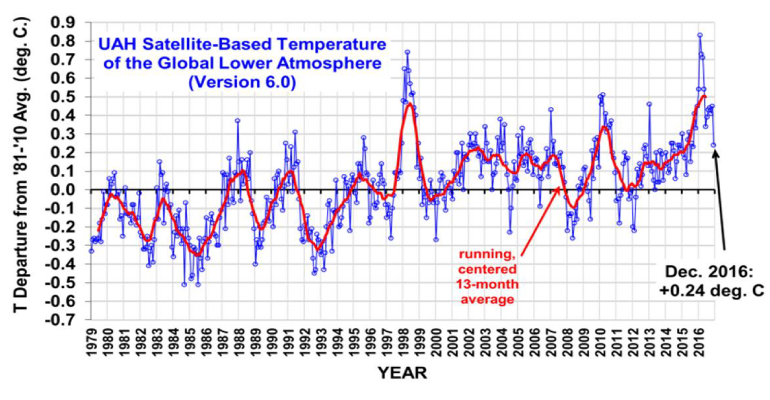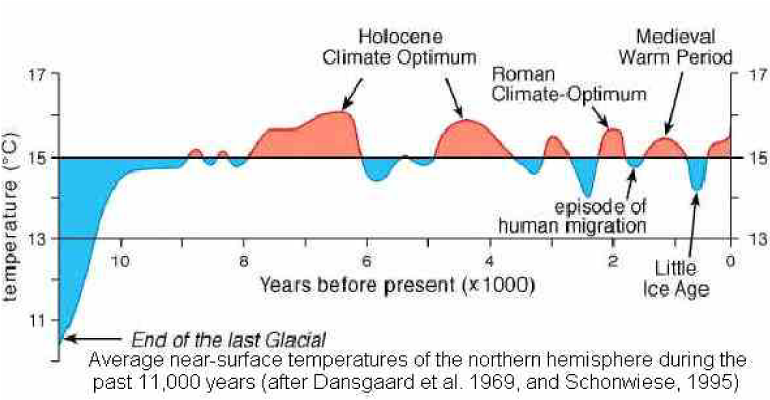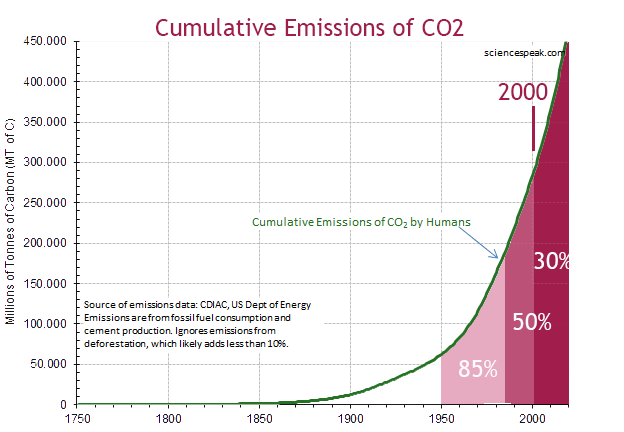
The Earth experienced two super El Ninos recently: 1997/1998 and 2015/2016. It was expected that 2016 would be the hottest year in the satellite record which begins in 1979. It was, but by only 0.02°C over 1998. That is not statistically significant according to Dr. Roy Spencer, keeper of the UAH satellite system data. (The margin of error is 0.1°C, much larger than the difference between the El Nino years.) The graph above shows the UAH results. A separate satellite analysis by Remote Sensing Systems (RSS) came to the same conclusion.
Satellites measure the temperature of the lower troposphere, the portion of the atmosphere where weather takes place. These measurements give a more realistic picture of global temperature than do surface measurements. Essentially, global temperature now is the same as it was nearly 18 years ago.
The earlier El Nino had a sharp drop off as a strong La Nina cooling took effect. The 2016/2017 La Nina appears to has started in mid December, 2016, and we can expect more cooling during the first half of 2017, but the current La Nino is expected to be weaker.
The media may still proclaim 2016 as the hottest year ever (in a cherry-picked time frame). For some perspective on that let’s see a longer perspective.
One thing the media may not mention is that our carbon dioxide emissions seem to have had no effect on global temperature. This was recently noted by Australian Jo Nova in her article “Since 2000 humans have put out 30% of their total CO2 but there is nothing to show for it.” There has been an 18-year “pause” in global warming.
If CO2 is supposed to be the principal cause of global warming, why hasn’t this great outpouring of CO2 had a noticeable effect? According to the Department of Energy, “Since 1751 approximately 337 billion metric tonnes of carbon have been released to the atmosphere from the consumption of fossil fuels and cement production. Half of these emissions have occurred since the mid 1970s.” And 30% have occurred since the 1997/1998 El Nino. There is no indication that all this CO2 is producing global warming.
Both North America and Europe are experiencing record cold weather. The North Atlantic Ocean has been rapidly cooling since the mid-2000s. (Source) Also, Solar activity is now at a low point as the current cycle winds down. Many scientists are confident the next cycle will also be a weak one. Periods of weak solar cycles are associated with periods of global cooling.
It seems that any alleged warming effect that CO2 may have is overwhelmed by natural variation in climate.
See also:
- 2014 was the third or sixth or 8000th warmest year
- Climate change in perspective
- An Illustrated Guide to El Nino and La Nina (On Wryheat blog)
- Picacho Peak weather station – how not to measure temperature
Note To readers:
- Index with links to all my ADI articles: http://wp.me/P3SUNp-1pi
- My comprehensive 28-page essay on climate change: http://wp.me/P3SUNp-1bq
- A shorter ADI version is at https://arizonadailyindependent.com/2013/08/01/climate-change-in-perspective/


